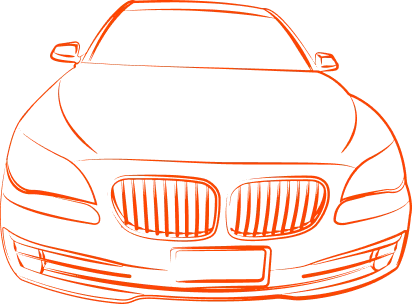
Instantly Check & Decode Any VIN for Free
Smarter, Faster, Trusted by Thousands
Lookup any VIN to reveal hidden damage, odometer rollbacks, previous owners and open recalls.
Input must be exactly 17 characters long.




FREE VIN CHECK - GET BASIC VEHICLE INFO WITHOUT PAYING A DIME
A Vehicle Identification Number (VIN)
is a unique 17-character code tied to every vehicle. It holds structured details about manufacturing, configuration, and when accessed properly — ownership and incident history. Checking it is one of the first things people do before buying a used car. To get started, try our tool.

WHAT A FREE VIN CHECK USUALLI CONTAINTS
Year of production
Make and model
Country and plant of manufacture
Engine size or trim in some cases

THIS ISN’T FAKE — IT’S JUST GENERIC.
In cases where a seller only shares the license plate, you can still investigate the vehicle. Our system lets you trace the plate to the VIN, and then pull relevant vehicle history data. Whether you’re on the lot or browsing listings, this gives you more flexibility to make smart decisions.
Learn more about how VIN checks work
WHAT THESE REPORTS ALMOST NEVER SHOW
You won’t see:
Reported accidents
Salvage or rebuilt status
Auction sales history
Prior auction sales or total loss events
Active or past recalls
Theft history or open liens
Theft history or open liens
That kind of data lives in insurance systems, state DMV databases, salvage auction logs, and government recall lists. Free tools don't connect to those sources.
Some websites create the impression of a full report by showing empty sections. For example, a report might include a box labeled 'Accident History' — but it will say 'No Data Available' unless you pay. That's not the same as 'no accidents.'
WHAT A FREE VIN CHECK USUALLI CONTAINTS
Ask for card info to “unlock full access”
Limit you to one or two lookups
Show outdated or placeholder info
Push paid subscriptions during the process
Even worse, the data might not be updated. That means you’re checking against stale records that
don’t reflect recent changes, title updates, or reported claims.
For a safer approach, see How to Use a VIN Check. How to Use a VIN
Check.
When a Free Check Makes Sense
There are use cases where a free tool is fine. If you just want to make sure a VIN is real and correctly formatted, go for it. It can help verify the number wasn’t mistyped or faked.
It’s also useful for general VIN decoding — understanding how a vehicle’s configuration is coded in its VIN. For learning purposes or early-stage browsing, it’s enough.
But when you’re looking at an actual purchase, and money is on the line? These tools fall short. Learn why in Benefits of a VIN Check.
If You Rely Only on Free Tools
The risk isn’t just missing some detail. It’s misunderstanding the entire condition of the vehicle. A car could look clean on paper — same year, model, color — but have three insurance claims and two salvage auctions in its past. Without full access to verified data, you wouldn’t know.
That kind of oversight can easily cost thousands. Worse, some damage may not show up until after the purchase, when repair bills start piling up.
Better Alternatives (Without Subscriptions)
There are platforms that provide full VIN history reports without forcing users into subscriptions. These services usually work on a per-report basis or via credits. While they’re not free, they pull from real sources like NMVTIS, insurance networks, and auction listings.
The point isn’t just to pay — it’s to get the right data before you buy.
SUMMARY
A free VIN check can be a useful first step. It tells you the VIN is valid, and gives basic vehicle specs. That’s good to know — but it’s not enough.
If you're serious about buying a used car, relying only on a free tool is risky. You won’t see past accidents, hidden title issues, or signs of rollback fraud. That kind of info doesn’t show up in basic lookups.
When real history matters, choose a report that pulls from trusted, current databases — not just VIN format decoders with nice interfaces. Start with a Free VIN Check — and go deeper when it counts.
Ready to get started?
Learn about a vehicle,


